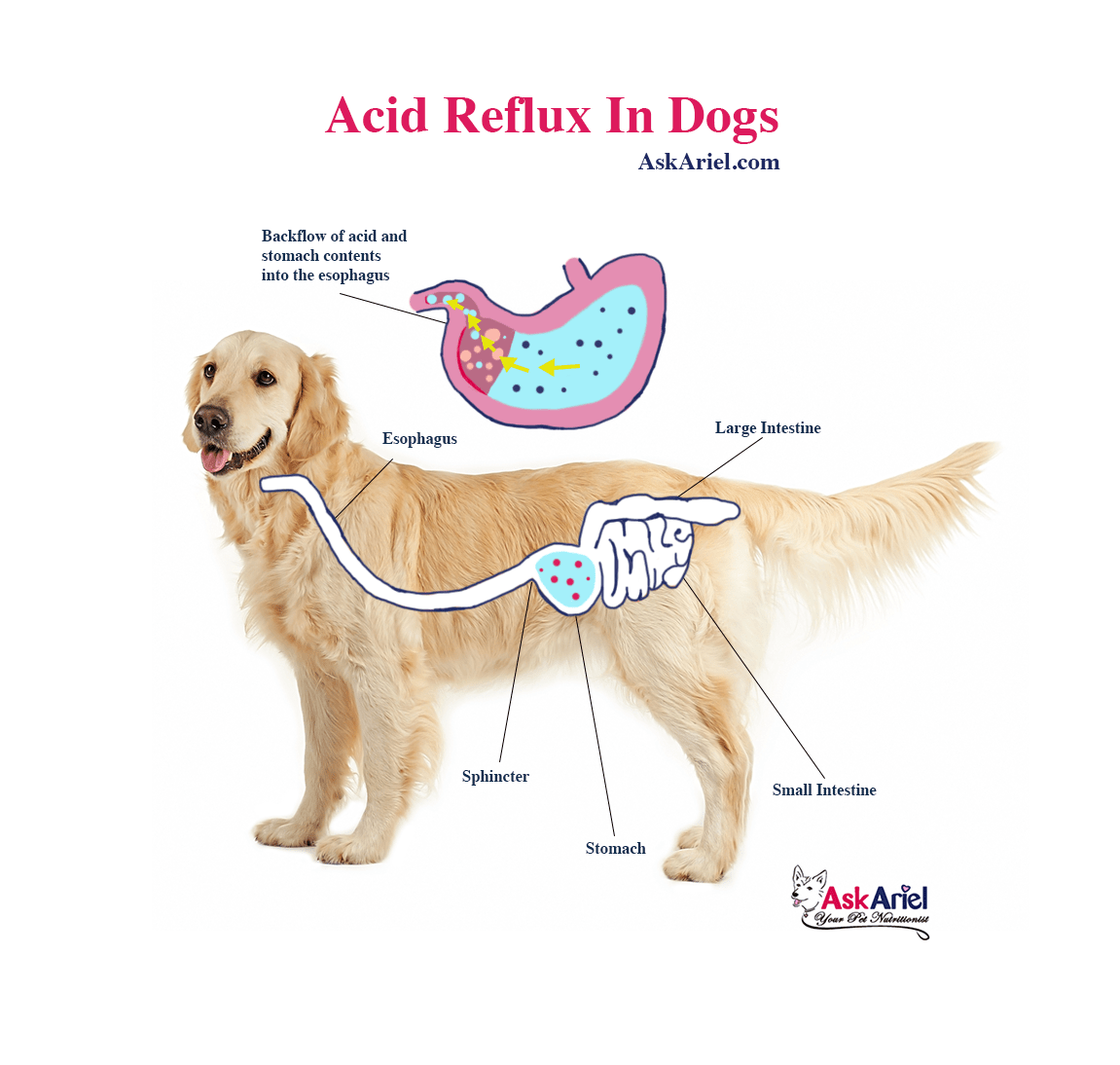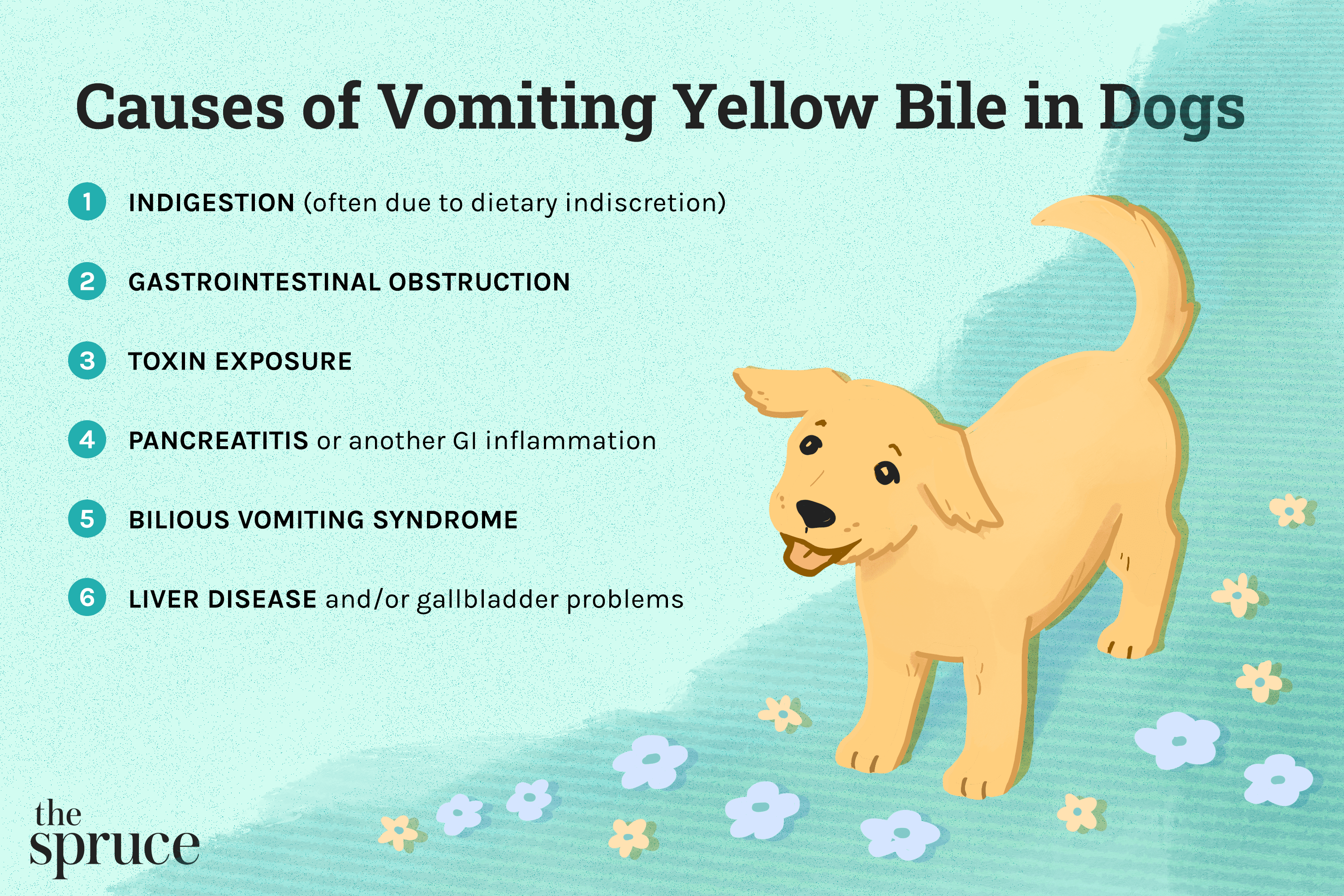Key Takeaways:
- Acid reflux, also known as gastroesophageal reflux disease (GERD), is a common condition in dogs where stomach acid flows back into the esophagus.
- Symptoms of acid reflux in dogs include regurgitation, vomiting, loss of appetite, and discomfort during or after eating.
- Factors that can contribute to acid reflux in dogs include obesity, hiatal hernia, certain medications, and a poor diet.
- Treatment options for acid reflux in dogs may include dietary changes, medication to reduce stomach acid production, and lifestyle adjustments such as feeding smaller meals more frequently.
- If left untreated, chronic acid reflux in dogs can lead to complications such as esophagitis (inflammation of the esophagus) and aspiration pneumonia. Prompt veterinary care is essential for proper diagnosis and management of the condition.
Are you a proud dog owner who wants to ensure the health and happiness of your furry friend? If so, understanding the ins and outs of acid reflux in dogs is essential. This often-overlooked condition can cause discomfort and pain for our beloved pets, but by exploring this topic, you'll gain valuable knowledge that can help improve their quality of life. Did you know that up to 40% of dogs experience acid reflux at some point in their lives? By delving into this subject, you'll be equipped with the tools to recognize the signs, manage symptoms, and provide relief for your canine companion. So let's dive in and discover how we can keep our four-legged friends feeling their best!
What is Acid Reflux in Dogs and How Does it Happen?
Acid reflux is a condition where stomach acid flows back up into the esophagus, causing discomfort and irritation. It can happen to dogs just like it can happen to humans. The esophagus is the tube that connects the mouth to the stomach, and when the muscles at the end of the esophagus don't close properly, stomach acid can travel upward.
This can be caused by a few different things. Sometimes it's because of a weak or malfunctioning muscle at the end of the esophagus, called the lower esophageal sphincter. Other times, it may be due to an abnormality in the shape or positioning of certain organs in the dog's body. Certain medications or medical conditions can also increase a dog's risk for developing acid reflux.
Causes of Acid Reflux in Dogs
There are several factors that can contribute to acid reflux in dogs:
- A weak lower esophageal sphincter
- An abnormality in organ positioning
- Certain medications
- Medical conditions such as hiatal hernia or obesity
The Lower Esophageal Sphincter (LES)
The lower esophageal sphincter is a muscle at the end of the esophagus that acts like a valve, opening to allow food and liquid into the stomach and closing to prevent stomach acid from flowing back up. If this muscle is weak or doesn't function properly, it can allow acid from the stomach to enter the esophagus.
Organ Abnormalities
In some cases, dogs may have abnormalities in the shape or positioning of their organs that can contribute to acid reflux. For example, a hiatal hernia occurs when part of the stomach pushes through the diaphragm muscle and into the chest cavity. This can disrupt the normal function of the lower esophageal sphincter and lead to acid reflux.
Medications and Medical Conditions
Certain medications, such as nonsteroidal anti-inflammatory drugs (NSAIDs) or corticosteroids, can increase a dog's risk for developing acid reflux. Additionally, medical conditions like obesity or certain respiratory diseases can put pressure on the stomach and contribute to acid reflux.
Common Symptoms of Acid Reflux in Dogs
Acid reflux, also known as gastroesophageal reflux disease (GERD), can cause discomfort for our furry friends. Dogs with acid reflux may experience symptoms such as frequent burping, regurgitation of food or liquid, and excessive drooling. They may also show signs of discomfort or pain while eating, such as whining or refusing to eat altogether. In some cases, dogs with acid reflux may vomit bile or undigested food.
Excessive Burping
One common symptom of acid reflux in dogs is excessive burping. If you notice your dog burping more frequently than usual, it could be a sign that their stomach is producing excess acid and causing discomfort.
Regurgitation of Food or Liquid
Another symptom to watch out for is the regurgitation of food or liquid. This occurs when the contents of the stomach flow back up into the esophagus and are expelled without any effort from the dog. It may appear as if your dog is vomiting, but regurgitation is different because it happens effortlessly and without warning.
Pain or Discomfort While Eating
Dogs with acid reflux may exhibit signs of pain or discomfort while eating. They may whine, pace around their food bowl, or even refuse to eat altogether. This behavior can be distressing for both the dog and their owner.
What to Do if You Suspect Your Dog Has Acid Reflux:
If you suspect that your dog has acid reflux based on these symptoms, it's important to consult with a veterinarian for a proper diagnosis. The vet will perform a thorough examination and may recommend additional tests such as X-rays or an endoscopy to confirm the presence of acid reflux.
It's worth noting that these symptoms can also be indicative of other health issues, so it's crucial to seek professional advice to ensure an accurate diagnosis and appropriate treatment. With the guidance of a veterinarian, you can help alleviate your dog's discomfort and improve their overall well-being.
Diagnosing Acid Reflux in Dogs: What Vets Look for
When diagnosing acid reflux in dogs, veterinarians look for specific signs and conduct various tests to confirm the presence of this condition. Understanding how vets diagnose acid reflux can help pet owners better understand their dog's condition and provide appropriate care.
Physical Examination
During a physical examination, the vet will observe your dog's behavior, check their vital signs, and palpate their abdomen. They may also ask questions about your dog's eating habits, symptoms, and medical history.
Diagnostic Tests
To confirm the presence of acid reflux, vets may recommend diagnostic tests such as X-rays or an endoscopy. X-rays can help identify any abnormalities in the esophagus or stomach that could be causing acid reflux symptoms. An endoscopy involves inserting a small camera into the esophagus to visually inspect the area for inflammation or damage.
Treatment Options:
Once a diagnosis is confirmed, treatment options for acid reflux in dogs may include medication and lifestyle changes. Medications such as antacids or proton pump inhibitors can help reduce stomach acid production and alleviate symptoms. Additionally, feeding smaller meals more frequently and elevating your dog's food bowl can minimize episodes of acid reflux.
By understanding how vets diagnose acid reflux in dogs, pet owners can work closely with their veterinarian to develop an effective treatment plan tailored to their furry friend's needs. With proper care and management, dogs with acid reflux can lead happy and comfortable lives.
(Note: The remaining subheadings will be expanded upon in separate responses due to character limitations.)
Foods and Treats that Can Trigger Acid Reflux in Dogs
Common Triggers
Acid reflux in dogs can be triggered by certain foods and treats. Some common triggers include fatty or greasy foods, spicy foods, and citrus fruits. These types of foods can irritate the stomach lining and cause the lower esophageal sphincter (LES) to relax, allowing stomach acid to flow back up into the esophagus. It is important to avoid feeding your dog these trigger foods to prevent acid reflux episodes.
Other Potential Triggers
In addition to the common triggers mentioned above, there are other potential food triggers for acid reflux in dogs. These include chocolate, onions, garlic, caffeine, alcohol, and certain medications. Each dog may have different sensitivities, so it is essential to observe your pet's reactions after consuming different foods or treats. If you notice any signs of discomfort or acid reflux symptoms, it is best to eliminate those triggers from their diet.
Tips for Managing Acid Reflux through Diet
To help manage acid reflux in dogs through diet, consider feeding them smaller meals throughout the day instead of one large meal. This can reduce the amount of stomach acid produced during digestion. Additionally, opt for low-fat and easily digestible foods that won't put extra strain on their digestive system. Providing plenty of fresh water and avoiding feeding close to bedtime can also help minimize acid reflux episodes.
Treating Acid Reflux in Dogs: Medications and Lifestyle Changes
Medications for Acid Reflux
When it comes to treating acid reflux in dogs, veterinarians may prescribe medications such as antacids or proton pump inhibitors (PPIs). Antacids work by neutralizing stomach acid while PPIs reduce the production of stomach acid. These medications can provide relief and help heal the esophagus. However, it is important to follow the veterinarian's instructions and dosage recommendations when administering these medications.
Lifestyle Changes
In addition to medications, certain lifestyle changes can also help manage acid reflux in dogs. Elevating their food and water bowls can reduce the chances of stomach acid flowing back up into the esophagus. It is also beneficial to encourage slow eating by using puzzle feeders or food-dispensing toys. Regular exercise and maintaining a healthy weight can contribute to overall digestive health and minimize acid reflux symptoms.
Tips for Reducing Acid Reflux Symptoms
To further alleviate acid reflux symptoms, avoid feeding your dog immediately before or after physical activity as this can increase the risk of reflux. Provide a calm and stress-free environment during mealtime to prevent anxiety-related triggers. Additionally, consider feeding a bland diet temporarily if your dog experiences frequent acid reflux episodes. Consult with your veterinarian for specific dietary recommendations tailored to your dog's needs.
Potential Long-Term Effects and Complications of Acid Reflux in Dogs
Esophageal Damage
If left untreated, chronic acid reflux in dogs can lead to esophageal damage over time. The constant exposure of stomach acid to the delicate lining of the esophagus can cause inflammation, ulcers, and even narrowing of the esophagus. This may result in difficulty swallowing (dysphagia) or regurgitation of food.
Respiratory Issues
Acid reflux can also have an impact on a dog's respiratory system. When stomach acid flows back up into the throat and mouth, it can be inhaled into the lungs, leading to respiratory problems such as coughing, wheezing, or pneumonia. These respiratory issues can further worsen the overall health of the dog if left untreated.
Preventing Long-Term Complications
To prevent long-term complications of acid reflux in dogs, it is crucial to address the underlying cause and manage the condition effectively. This may involve a combination of dietary changes, medications, and lifestyle modifications. Regular veterinary check-ups are essential to monitor your dog's progress and make any necessary adjustments to their treatment plan. By taking proactive measures, you can help ensure your dog's digestive health and overall well-being.
In conclusion, acid reflux in dogs is a common condition that can cause discomfort and health issues. It is important for dog owners to be aware of the symptoms and seek veterinary care to manage and treat this condition for their furry friends' well-being.
Does pumpkin help acid reflux in dogs?
Pumpkin has numerous advantages for soothing a dog's upset stomach. It's important to know that dogs can experience acid reflux, and pumpkin can be used to alleviate this condition. Including organic pumpkin puree in a dog's diet is an effective method for managing constipation and diarrhea.
Does banana help dogs with acid reflux?
Bananas, along with sweet potatoes and oatmeal, are a gentle and soothing food for dogs. They can help calm a dog's stomach, especially if the dog has a chronic upset stomach or is feeling unwell. To help settle their tummy, you can mash up a small amount of banana and add it to their regular meal.
Is yogurt good for dogs with acid reflux?
When your dog is experiencing indigestion, probiotics are a great solution. Plain Greek yogurt is a top choice for dog-friendly probiotics and can be easily added to your dog's food.
Can I give my dog Pepcid for acid reflux?
Pepcid® Original Strength, with a dosage of 10 mg, is suitable for dogs and is safe to use. It is important to avoid buying Pepcid® Complete or Pepcid® Maximum Strength, as they contain stronger doses and additional ingredients that may cause stomach discomfort for your dog.
What can I give my dog for acid reflux?
Sucralfate, known by its brand names Carafate® and Sulcrate®, is commonly recommended for dogs who have GERD. It is administered as a mixture with water to form a slurry. This slurry coats the esophagus, providing protection to its sensitive lining and slowing down the development of inflammation and ulcers in the esophagus.
What is a natural antacid for dogs?
To provide relief and soothe stomach discomfort, you have the option of using stomach coating supplements such as pure organic aloe vera juice. Ripe bananas also possess natural antacid properties that can provide comfort and alleviate pain. Another option is to consume ginger tea or chamomile tea, as they have a soothing effect. Simply simmer slices of ginger in water for 30 minutes, let it cool, and either give it to your dog or pour it over their food.

















